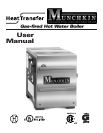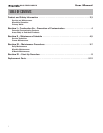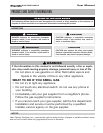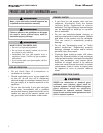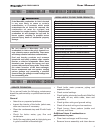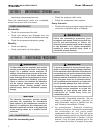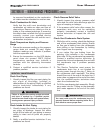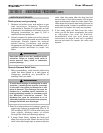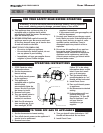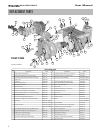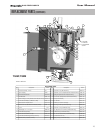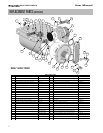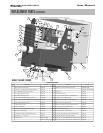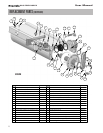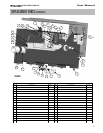
3
GAS-FIRED BOILER User Manual
WARNING
User — Have this boiler serviced/inspected by
a qualified service technician annually.
WARNING
Failure to adhere to the guidelines on this page
can result in severe personal injury, death or
substantial property damage.
WARNING
WHAT TO DO IF YOU SMELL GAS
• Do not try to light any appliance.
• Do not touch any electric switch; do not use
any phone in your building.
• Immediately call your gas supplier from a
neighbor's phone. Follow the gas suppliers'
instructions.
• If you cannot reach your gas supplier, call the
fire department.
BOILER OPERATION
• Do not block flow of combustion or
ventilation air to boiler.
• Should overheating occur or gas supply fail
to shut off, do not turn off or disconnect
electrical supply to circulator. Instead, shut off
the gas supply at a location external to the
appliance.
• Do not use this boiler if any part has been
under water. Immediately call a qualified
service technician to inspect the boiler and to
replace any part of the control system and
any gas control that has been under water.
PRODUCT AND SAFETY INFORMATION
(CONT’D)
PRIMARY WATER
• If you have an old system with cast iron
radiators, thoroughly flush the system
(without boiler connected) to remove
sediment. The high-efficiency heat exchanger
can be damaged by build-up or corrosion
due to sediment.
• Do not use petroleum-based cleaning or
sealing compounds in boiler system. Gaskets
and seals in the system may be damaged.
This can result in substantial property
damage.
• Do not use “homemade cures” or “boiler
patent medicines.” Substantial property
damage, damage to boiler, and/or serious
personal injury may result.
• Continual fresh make-up water will reduce
boiler life. Mineral buildup in heat exchanger
reduces heat transfer, overheats the stainless
steel heat exchanger, and causes failure.
Addition of oxygen carried in by make-up
water can cause internal corrosion in system
components. Leaks in boiler or piping must
be repaired at once to prevent make-up
water.
FREEZE PROTECTION FLUIDS
CAUTION
NEVER use automotive or standard glycol
antifreeze, even ethylene glycol made for
hydronic systems. Use only inhibited propylene
glycol solutions, which are specifically
formulated for hydronic systems. Ethylene
glycol is toxic and can attack gaskets and seals
used in hydronic systems.



